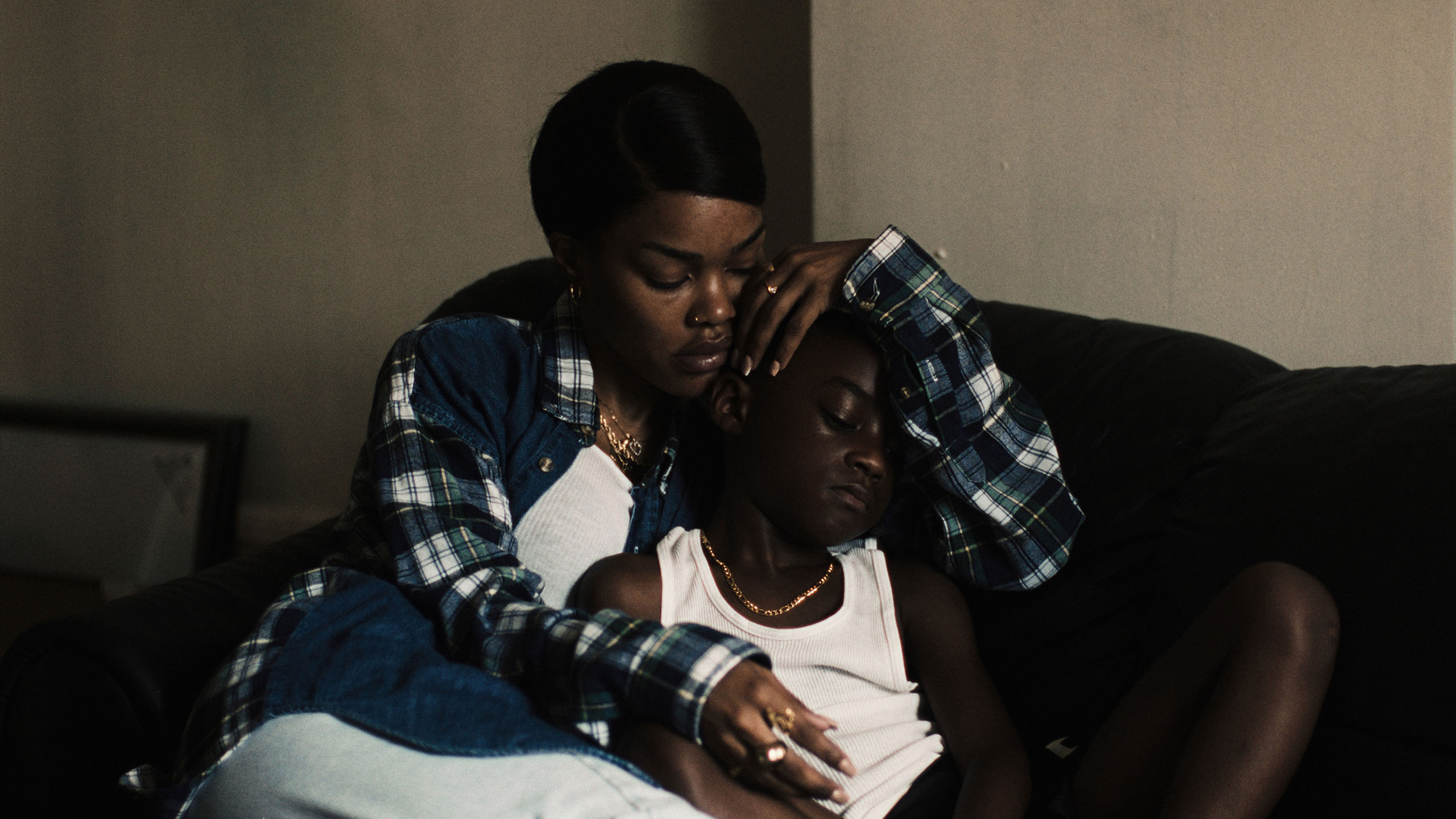by Jason Adams

Sneaking up on you like an A train out of a dark subway tunnel, first-time feature writer-director A.V. Rockwell’s A Thousand and One (which just won the U.S. Dramatic Grand Jury Prize at Sundance and is hitting screens on March 31st) is one of those magical small movies that plays its big dramas so low-key that the tumult you find your heart in by its last act comes as a total surprise. With a tremendous and blessedly unsentimental performance at its heart from singer-turned-actress Teyana Taylor, A Thousand and One wears its Moonlight influences proudly on its sleeve but still manages to be its own thing - and what a beautiful thing it manages...
It’s the mid-90s in New York and Inez (Taylor) ain’t doing great... with a temper that flares at the slightest provocation she keeps alienating even those who care about her and are trying to help. Alone and frustrated she keeps sneaking over to see her six-year-old son Terry in foster care – at this point Terry is played by Aaron Kingsley Adetola but as this film progresses across two decades we’ll see two other actors step in for the boy, Aven Courtney at age 13 and Josiah Cross at 17. (I said Moonlight for a reason, and that's before we even get to the warm father figure full of life lessons.)
Then one day Terry has a health scare, and Inez goes to visit him in the hospital – with only each other for company they bond fast in those quiet rooms, and when it’s time for Terry to go, well, Inez makes other plans. Although calling it a “plan” overestimates her rash impulse – Inez simply snatches Terry and runs off to another part of the city, changes his name, and they get on with their life together.
Of course as the boy grows up the wobbly foundation their new life together’s built upon will come to be tested, but first there is life to be lived, and New York in the 90s up through the 2000s offers plenty of that. We watch the city change around them – the encroaching threat of gentrification hasn’t been wielded so well since Spike Lee smashed a garbage can through Sal's pizza-shop window in Do the Right Thing. Rockwell presents it as a diabolical insinuation, one suspicion piling on top of another, the characters unable to see the broad picture until its too late. A helpful new landlord seems like a gift, at first. But time stops for no fixed sink.
Maybe it’s just that I personally have lived in New York for a big chunk of the time presented here and have myself watched the run-down bodegas change overnight into soulless KFCs and Wells Fargos – and maybe knowing that I was one of the white dudes who moved into a formerly black neighborhood where the rent was cheap and the building had just been renovated – well not a second of A Thousand and One rang false from where I stood.
Even the title, you can practically hear George Bush’s “points of light” finishing off the phrase, just with that one standing out. There’s always one on the outside looking in – it wouldn’t all be light if there wasn’t a darkness around. And eyes within that darkness. The want giving the have its meaning. By the time the full scope of Inez’s wants have been revealed, and the film is through illustrating the way an unjust system only continues to stand by keeping her and people like her from them, A Thousand and One will have your heart broken into a thousand and one little bits.